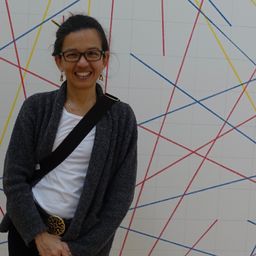
Sessions auxquelles Ms. Kecia Fong participe
Lundi 6 Juin, 2016
Sessions auxquelles Ms. Kecia Fong assiste
Vendredi 3 Juin, 2016
This forum will explore the current directions of critical heritage studies and what makes ACHS distinctive. Panel members will discuss what the term critical means to them, and what directions they would like to see develop in the future. To help develop an open dialogue, the session will also give considerable time to contributions from the audience.
Samedi 4 Juin, 2016
What if we changed our views on heritage? And if heritage has already changed? While, on the global scene, states maintain their leading role in the mobilization of social and territorial histories, on the local scale, regions, neighbourhoods and parishes have changed. Citizens and communities too: they latch on to heritage to express an unprecedented range of belongings that no law seems to be able to take measures to contain, often to the discontent of...
Most of what we experience as heritage emerges into conscious recognition through a complex mixture of political and ideological filters, including nationalism. In these processes, through a variety of devices (museums, scholarly research, consumer reproduction, etc.), dualistic classifications articulate a powerful hierarchy of value and significance. In particular, the tangible-intangible pair, given legitimacy by such international bodies as UNESCO, reproduces a selective ordering of cul...
Lundi 6 Juin, 2016
Mardi 7 Juin, 2016
As the interface between past and present, heritage is deeply involved in articulations of personal and group identity, working to unite and harmonize group relations, and, simultaneously causing frictions, fractions, and violence. Critical heritage theory reveals that values and approaches to heritage are articulated both within and across regions (such as Asia, or Europe). A vital, and as yet unanswered, question centres on the degree to which heritage in Asia fundamentally differs from ...
This session proposes a critical and epistemological reflection on sustainable urban heritage conservation. Recent research on the management of urban heritage following its conservation process is characterized by a growing number of studies that aim to provide an overview of how to assess the sustainability of existing practices. This dominant focus of the research has contributed to the development of indicators and approaches to sustainable development in this field. In addition, it has a...




